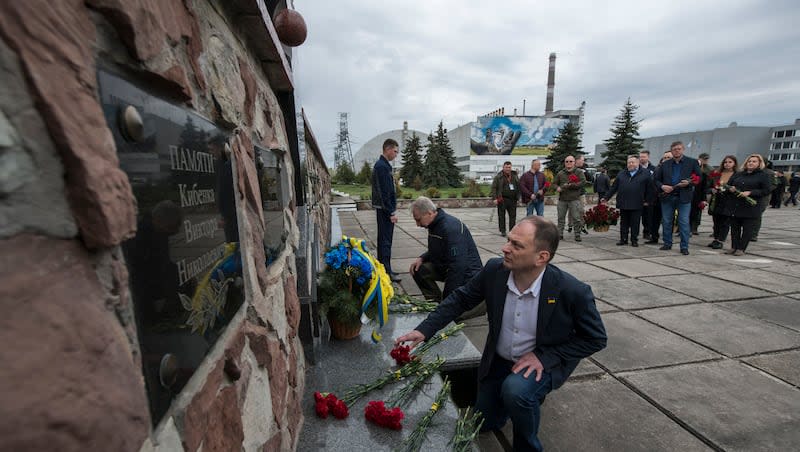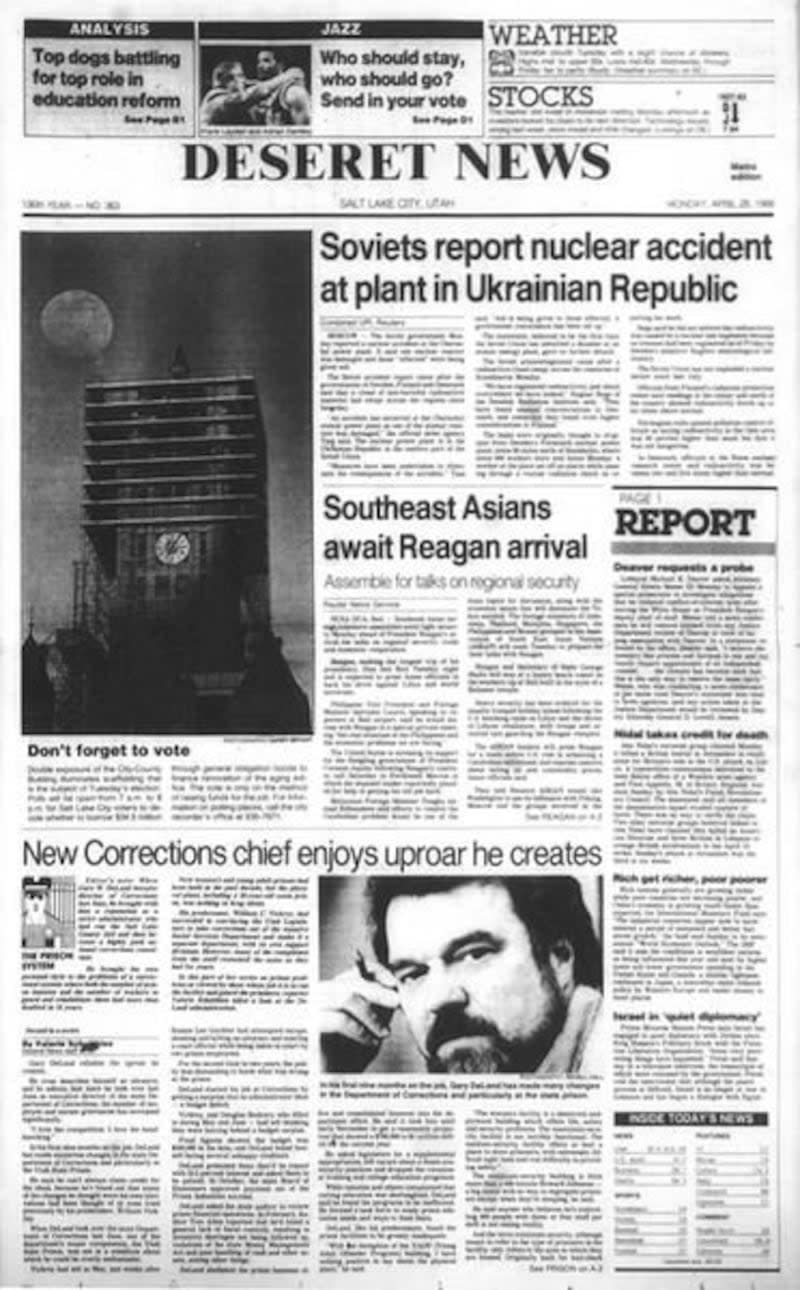Deseret News archives: Has Ukraine ever recovered from the Chernobyl nuclear disaster?

A look back at local, national and world events through Deseret News archives.
On April 26, 1986, an explosion and fire at the Chernobyl nuclear power plant in Ukraine caused radioactive fallout to begin spewing into the atmosphere.
Dozens of people were killed in the immediate aftermath of the disaster while the long-term death toll from radiation poisoning is believed to number in the thousands, according to most accounts.
It took the Soviet Union two days to report the explosion, and then “only after winds had carried the fallout across Europe and Swedish experts had gone public with their concerns,” per Associated Press reports.

Estimates of the death toll for the disaster is a subject of much speculation with estimates ranging from 9,000 to 90,000. The long-term effects for those who were sent in to stop the fire and clean up the contamination site, often referred to as “liquidators,” are well documented. The number could be as many as 600,000.
Ukraine was part of the Soviet Union then, and some survivors and families of those who were involved in fighting the fire that ensued live in Ukraine and Belarus. In Belarus, per wire reports, 470 towns and villages had to be permanently evacuated. Nearly 50,000 residents of Pripyat, the company town of the Chernobyl power station, were put on buses and driven away. It reportedly remains a ghost town.
On the 30th anniversary of the explosion, Russia President Vladimir Putin, “in a message to liquidators, called the Chernobyl disaster ‘a grave lesson for all mankind,’” per The Associated Press.
It seems anniversaries of the disaster provide a timeline of the tragedy. On the fifth anniversary, a senior Soviet scientist said plutonium and radioactive waste “continue to threaten the health of a growing number of people who inhale or ingest them.”
In 1994, an MIT scientist published a dissertation alleging the nuclear plant’s core meltdown was worse than reported.
In 1997, when Ukraine gained independence from Moscow in 1991, it inherited an aging Soviet-era industrial base — as well as outdated policies and attitudes toward energy use. It still relies on Russia for nuclear fuel, more than 80% of its gas and 95% of its oil.
And then there is the ongoing global conflict and effort to solve a humanitarian crisis, chronicled so well by Deseret News writers and photographers last year. Utahns have stepped in to help in many ways.

